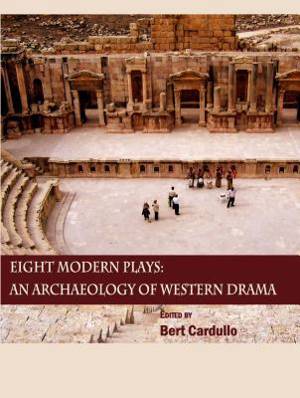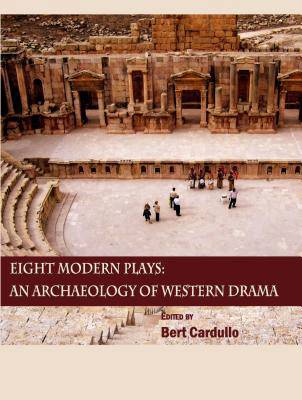
- Retrait gratuit dans votre magasin Club
- 7.000.000 titres dans notre catalogue
- Payer en toute sécurité
- Toujours un magasin près de chez vous
- Retrait gratuit dans votre magasin Club
- 7.000.000 titres dans notre catalogue
- Payer en toute sécurité
- Toujours un magasin près de chez vous
186,45 €
+ 372 points
Description
Much has been made of the gains of the multicultural reconstruction of the canon of world drama, but what about the works that have been abandoned to make room for the new ones? Eight Modern Plays: An Archaeology of Western Drama brings together eight plays that have been dropped from (or never included in) the major anthologies of world drama over the past ten to twenty years, in order to examine the consequences of the new canonization for our understanding of the development of dramatic form. Those plays are The Thunderstorm (1859), by Alexander Ostrovsky; Engaged (1877), by W. S. Gilbert; The Intruder (1890), by Maurice Maeterlinck; The Weavers (1892), by Gerhart Hauptmann; From Morn to Midnight (1912), by Georg Kaiser; The Magnanimous Cuckold (1921), by Fernand Crommelynck; Awake and Sing! (1935), by Clifford Odets; and The Trial of the Innocents (1950), by Carlo Terron. The recent interpolation of new or recent works into the canon of great dramatic literature, it must be said, has been executed at the cost of knowledge, thereby raising vital questions about the study of theater and drama in the twenty-first century. While other anthologies ostensibly present a comprehensive overview of both the evolution of the Western dramatic tradition and the influences on it from other traditions, these texts in fact often neglect strategic moments (for all the wrong reasons, associated with gender, race, class, and hemisphere) in European theater history. Central to the revision of the canon, for example, has been the devaluation of comedy-particularly farce-as a genre (represented in An Archaeology of Western Drama by one quarter of the plays) and thus the implicit denial of its importance to an understanding of the major dramatic genre of our time, tragicomedy. Key to the revision of the canon, as well, has been not only the exclusion of sentimental comedies and tragedies, but also the exclusion of plays from the Italian Renaissance and from the Romantic movement, not to speak of the reduction of the Russian achievement to a single play by Anton Chekhov. Equally as important, no contemporary play collection acknowledges the fact that modern drama begins, not with Ibsen, but much earlier in Germany with works by Lenz, Kleist, Grabbe, and Hebbel-who themselves were followed by the similarly underrepresented Germans Gerhart Hauptmann and Frank Wedekind. Finally, An Archaeology of Western Drama concludes with a play from the middle of the twentieth century, obviously not because the editor thinks that good plays have not been written since then, but rather because he again wishes to avoid the mistake of other anthologies: irresponsibly to declare a play great or aesthetically representative before the dust has settled around it, so to speak; or to engage, almost unwittingly, in the selecting of dramas for inclusion on the basis of their current social and political standing. The plays included in An Archaeology of Western Drama reveal a wealth of dramatic material for production as well as the classroom, while the accompanying prefaces explore the importance of each work within the old canon and raise questions about the cultural implications of its exclusion or replacement. As a result, An Archaeology of Western Drama should become an essential complementary or supplemental anthology for theater history, literature, and theory or criticism courses (graduate as well as undergraduate) that seek to conduct a truly comprehensive survey of dramatic form-one that is temporal and geographic in scope as well as artistic. This collection of plays should be of interest, moreover, to any educated person engaged in the debate over what should be studied-and why-in our ever-expanding global culture.
Spécifications
Parties prenantes
- Auteur(s) :
- Editeur:
Contenu
- Nombre de pages :
- 650
- Langue:
- Anglais
Caractéristiques
- EAN:
- 9781443822787
- Date de parution :
- 01-09-10
- Format:
- Livre relié
- Format numérique:
- Genaaid
- Poids :
- 285 g







